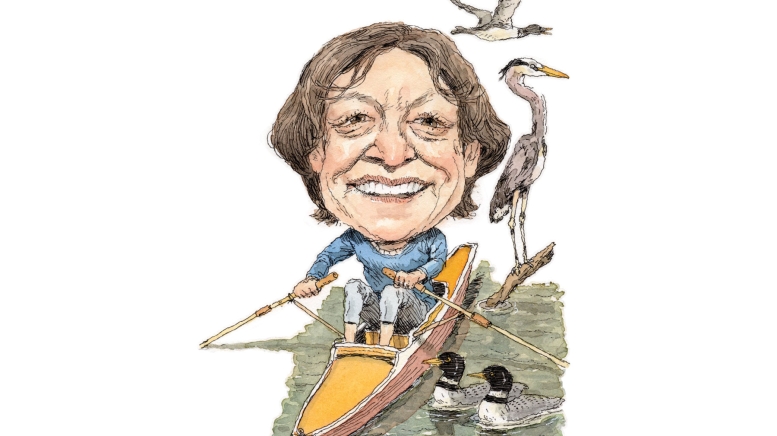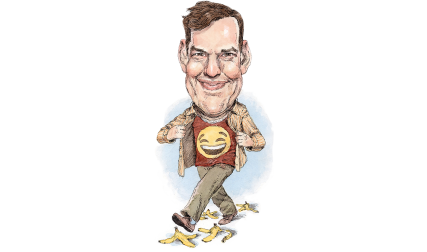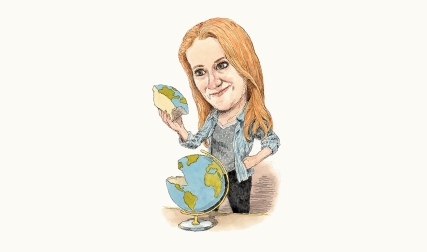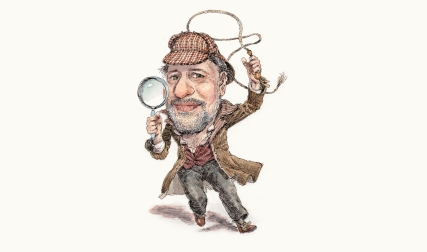Notable: Member of 1976, 1980, and 1984 Olympic rowing teams; with husband Dick Dreissigacker (also an Olympic rower) in 2008 purchased Craftsbury Outdoor Center, a nonprofit training facility for elite and recreational scullers, cross-country skiers, runners, cyclists, and biathletes
Career: Member of marketing and engineering teams, Concept2, a Morrisville, Vermont, manufacturer of indoor rowing machines (ergs) and oars founded by Dreissigacker; coached Dartmouth women’s rowing (1977-79), after teaching and coaching at St. Paul’s School
Education: A.B., biology; M.E., 1983
Personal: Lives in Craftsbury Common, Vermont; mother of Hannah ’09, Th’10, Emily ’11, and Ethan ’13, Th’15; sister of 1984 Olympic silver medalist Charlotte “Carlie” Geer ’80, whom she coached at Dartmouth
“I usually row in the morning when the sun’s coming up, and there’s often mist. The water is usually calm. There are loons and great blue herons and kingfishers. There are a few other people out, but not too many. I’m very much focused on my own boat and what I’m doing. I’m thinking both about the rowing that I’m doing and my technique. I’m also very aware of what’s around me and feeling lucky that I am in such a beautiful place.”
“Dick and I have joked with friends who paddle canoes that when you’re going forward, you’re just looking. Nothing seems to happen. When you’re going backwards, there’s new stuff appearing in your peripheral vision constantly.”
“What keeps me coming back to rowing is that there’s always something to think about while going for the perfect stroke. When I get back on the water in spring after rowing indoors all winter, I ask myself, ‘What do I need to think about differently?’ I don’t profess to have perfect technique, but it’s always important to think about.”
“The clearest difference in rowing is between the single and the team boat. Ideally, everybody has the experience of a single even if mostly racing a team boat. Feedback is so clear. You really learn what affects your body motions, your hand levels, and the smoothness of your power application, and you carry that back to the team boat.”
“I learned to row at Smith, but it was ‘proper rowing for young ladies.’ I’d been a competitive swimmer, but they had only synchronized. I was thrilled to get to Hanover my junior year. I found the College was starting a women’s rowing team and a women’s swim team. I was so eager for those opportunities.”
“It wasn’t until the point of graduating that I realized I loved rowing too much to stop. I made the national team and chose to go to the world championships when Dartmouth Medical School wouldn’t defer my acceptance. It worked out for the best because I was intrigued by and better suited to studying engineering-oriented issues.”
“Being a coach teaches you more about your sport and why you do things the way you do as an athlete. It makes you think about the words you can use to describe your technique to somebody else, the right vocabulary to describe a change that somebody needs to make.”
“Dick and I were very careful not to put our sport on our kids. We wanted them to do the things they wanted, and the girls’ passion was skiing. [Hannah and Emily competed in biathlon in the 2014 and 2018 Olympics, respectively.] Emily rowed for Dartmouth only because her ski coach recommended it. A lot of things came together for them to become Olympians also.”
“What I love about my work is the teams I work with. At Concept2, we’re making products that are good for people, so that’s very satisfying. At Craftsbury, I love that our coaches understand that sport is much more than just getting ready for competition. It’s a way you can learn a whole lot of life skills—teamwork and communication and being responsible for getting things done and getting places on time. I love the cross-pollination between athletes and members of the community.”
“I have no idea how many miles I’ve rowed in my life. No idea.”




